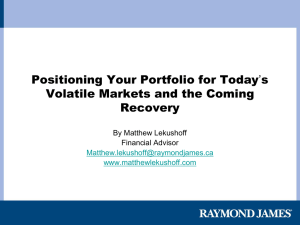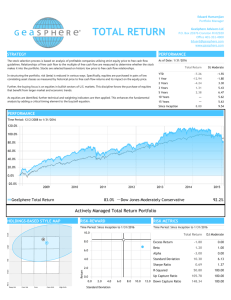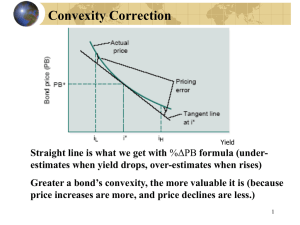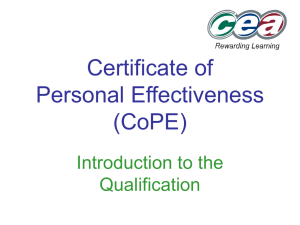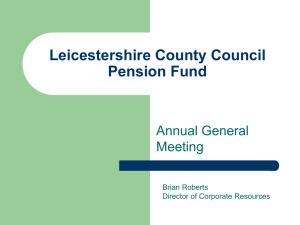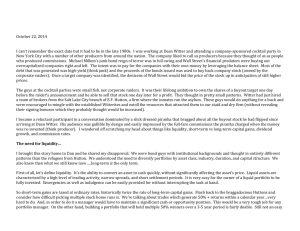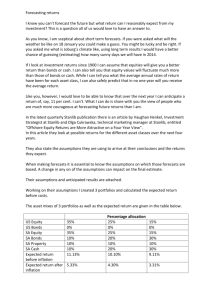Novacap 2016 consequent Investing
advertisement
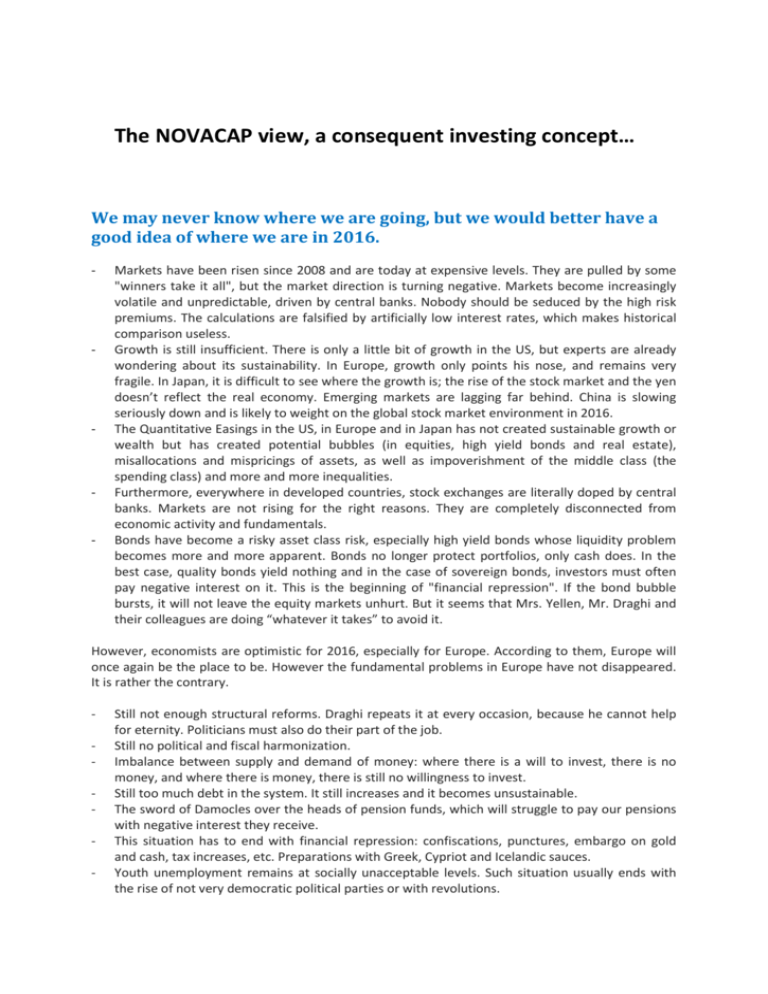
The NOVACAP view, a consequent investing concept… We may never know where we are going, but we would better have a good idea of where we are in 2016. - - - - - Markets have been risen since 2008 and are today at expensive levels. They are pulled by some "winners take it all", but the market direction is turning negative. Markets become increasingly volatile and unpredictable, driven by central banks. Nobody should be seduced by the high risk premiums. The calculations are falsified by artificially low interest rates, which makes historical comparison useless. Growth is still insufficient. There is only a little bit of growth in the US, but experts are already wondering about its sustainability. In Europe, growth only points his nose, and remains very fragile. In Japan, it is difficult to see where the growth is; the rise of the stock market and the yen doesn’t reflect the real economy. Emerging markets are lagging far behind. China is slowing seriously down and is likely to weight on the global stock market environment in 2016. The Quantitative Easings in the US, in Europe and in Japan has not created sustainable growth or wealth but has created potential bubbles (in equities, high yield bonds and real estate), misallocations and mispricings of assets, as well as impoverishment of the middle class (the spending class) and more and more inequalities. Furthermore, everywhere in developed countries, stock exchanges are literally doped by central banks. Markets are not rising for the right reasons. They are completely disconnected from economic activity and fundamentals. Bonds have become a risky asset class risk, especially high yield bonds whose liquidity problem becomes more and more apparent. Bonds no longer protect portfolios, only cash does. In the best case, quality bonds yield nothing and in the case of sovereign bonds, investors must often pay negative interest on it. This is the beginning of "financial repression". If the bond bubble bursts, it will not leave the equity markets unhurt. But it seems that Mrs. Yellen, Mr. Draghi and their colleagues are doing “whatever it takes” to avoid it. However, economists are optimistic for 2016, especially for Europe. According to them, Europe will once again be the place to be. However the fundamental problems in Europe have not disappeared. It is rather the contrary. - Still not enough structural reforms. Draghi repeats it at every occasion, because he cannot help for eternity. Politicians must also do their part of the job. Still no political and fiscal harmonization. Imbalance between supply and demand of money: where there is a will to invest, there is no money, and where there is money, there is still no willingness to invest. Still too much debt in the system. It still increases and it becomes unsustainable. The sword of Damocles over the heads of pension funds, which will struggle to pay our pensions with negative interest they receive. This situation has to end with financial repression: confiscations, punctures, embargo on gold and cash, tax increases, etc. Preparations with Greek, Cypriot and Icelandic sauces. Youth unemployment remains at socially unacceptable levels. Such situation usually ends with the rise of not very democratic political parties or with revolutions. - Other topics that may disturb the markets: the "Brexit", the Finns want to explore a similar path, the come-back of Tsipras & C°… And finally the refugee crisis whose political consequences are unpredictable Who will save Wall Street and main Street ? What strategy for 2016 ? How to navigate between Scylla - try to take advantage of some market rises and Charybdis - avoid being engulfed in a devastating crash ? The Core portfolio consists of a few carefully selected long-only funds : the best stock-pickers for the Global World, Europe, United States and Emerging markets. Europe still holds a good place in our allocation because Mr. Draghi could still take actions that investors could appreciate. Wall Street, although more expensive, is not left aside, because at least there is some growth over there and we could hope that Mrs. Yellen will make no mistakes before May. We have seen (whatever the consensus about the European preference means) that every time there was a correction on Wall Street in 2015, Europe has fallen even more. December was for exemple another good illustration. For Emerging Markets, we remain extremely cautious, because these markets are purely driven by the "hot money" (speculative money coming in and out). For the time being Japan is not one of the favorite places, but nothing is excluded. To protect the core portfolio, we have some decorrelated strategies, flexible asset allocation funds and long/short funds. These strategies will be further strengthened. The historical perspective that we have in these three categories of strategies is still not long enough. Most of these funds were launched after 2008 and have not yet experienced real crashes. We must therefore diversify; start with many of them to arrive with the best. Finally, the "net" exposure to equities will be adjusted - as in 2015 - with long and short ETFs, according to the trends that will emerge in the course of the year. US dollar net exposure: we will keep a good portion of the portfolio in USD (currently around 30%). Not because we have blind faith in the American money, but because we have even less confidence in the Euro, with all its political risks. * * * * * 2015 was an extremely volatile year and therefore very difficult. You had to choose well where to invest, because there were so many discrepancies between the different markets of the world. Emerging Markets continued to tumble, Wall Street did absolutely nothing (but the dollar continued to rise), Japan was the place to be (Nikkei +9.07% and Yen +10.56%) and the European stock exchanges have not made the expected success. What will 2016 bring us ? We do not pretend to predict and wil remain cautious. Jacques Bossuyt, Laurent Van den Eynde As the result of an equity portfolio depends for 80% of to be or not to be in the market, the most important thing is to actively manage the "net" exposure to equities. The goal of the CONSEQUENT INVESTING CONCEPT is to make money when times are good (participate when markets rise) and not to lose too much when everything goes wrong (to be protected in case of big corrections). This is what I apply in the model portfolio New Diamond Flexible. The portfolio is invested in funds and ETFs and may have an equity exposure of 0% to 100%. I leave the stock picking and the long-term view to the excellent managers of the funds that I selected in the core portfolio, and I do the most difficult job : I manage the asset and style allocation and the net equity exposure.


